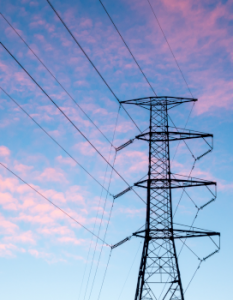For a few years now, with the development of the RES market in Europe, an increase in interest in Power Purchase Agreements (PPAs) can be observed. Corporate PPAs are a solution allowing for the sale of electricity from renewable energy sources between the producer of electricity and the customer, excluding trading companies.
Changes in the energy market and the search for a stable RES market by both energy producers and consumers have resulted in the adoption of Directive 2018/2001 of the European Parliament and of the Council (EU) of 11 December 2018 on the promotion of the use of energy from renewable sources (EU Directive RED II). It will be implemented in Poland until 30 June 2021, which will allow for a wider opening of the PPA market. Poland has already started the process of changes in legal regulations in this area.
Types of Power Purchase Agreements
In business practice we distinguish as many as 14 types of Power Purchase Agreements, with 3 basic models being the most common:
- the physical model of a PPA, which consists in the actual sale of electricity by a producer to a specific customer through a grid operator;
- the financial model of a PPA, whose main premise is that there is no need for an actual connection between the producer of electricity and the end user, while the sale of energy takes place through mutual settlements between the producer of electricity, its customer and the grid operator;
- the direct line model, i.e. the simplest way to conclude PPAs using a private direct line between the producer of electricity and its customer – the development of this model of PPAs is currently not possible due to the legal regulations in force in Poland.
The instability of market prices makes planning difficult
Although PPAs are an opportunity for new investments in the field of renewable energy, all the solutions applied in them are relatively new. Therefore, it is worth noting several important issues during their preparation, negotiation and signing.
In this case, we are dealing with a specific situation in which producers of electricity are looking for a stable and long-term source of revenue and consumers are striving for maximum security of long-term and uninterrupted energy supply at a predetermined, stable price. However, the high volatility of market energy prices may be an obstacle.
Properly designed PPA will secure both parties
In practice, PPAs are currently concluded for a period of 3-5 years, because the volatility of market prices on the one hand and the need to adjust the volume of energy produced to the needs of the consumer on the other makes it difficult to plan energy supplies at a predetermined price in the long term.
Therefore, it is very important to balance the interests of the parties in this respect and to sign the agreement in such a way as to make it possible to plan energy supplies at a predetermined price in the long term:
- determine the duration of the contract, taking into account the expectations of both parties;
- determine in a safe way for both parties the possibility and conditions of its extension for a further period;
- precisely determine the conditions, rules and deadlines for renegotiation of the price and amount of energy covered by the contract;
- provide mechanisms which will allow for its renegotiation in case of an unfavorable change of legal regulations, preventing or significantly hindering the execution of the contract by either party;
- determine in what cases and under what conditions the agreement may be terminated;
- specify the manner of settlement of the parties after termination of the agreement;
- in all agreements, choose the court with possible consideration of whether or not to designate an arbitration court;
- in the case of cross-border contracts, make a choice of law.
RES innovations require a thorough market analysis
As PPA in Poland is still a pioneering solution, the practice is to build on experience from other countries (e.g. Scandinavia) and look for optimal solutions based on previous experience with the RES market. Power Purchase Agreements are a good alternative for both parties and are likely to become an important part of the RES market. In time, there will be contractual mechanisms that will work well in practice.
Authors:
Karolina Barałkiewicz-Sokal, attorney at law (PL)
Paula Staszak-Urbańska, LL.M., trainee attorney-at-law (PL)






